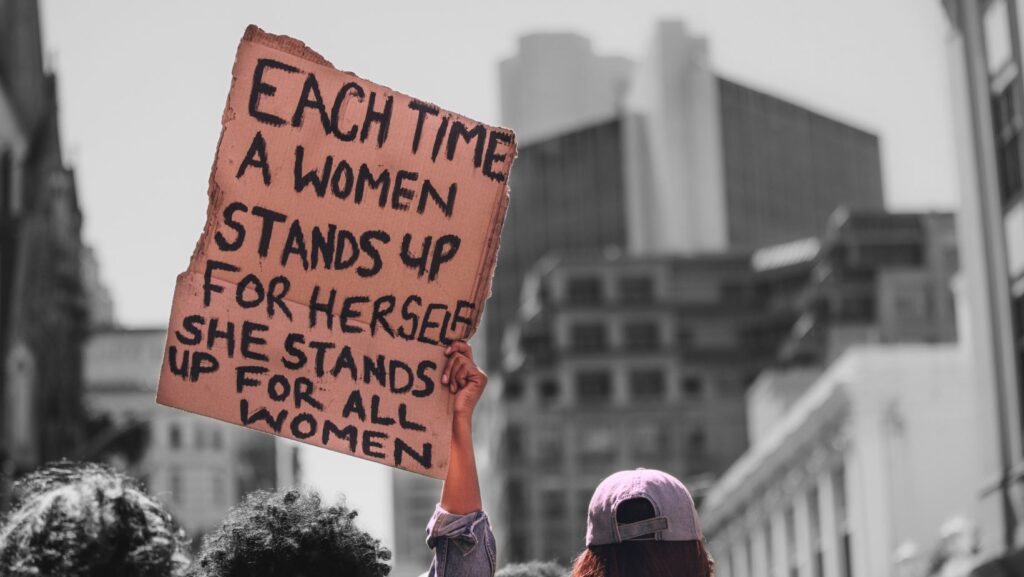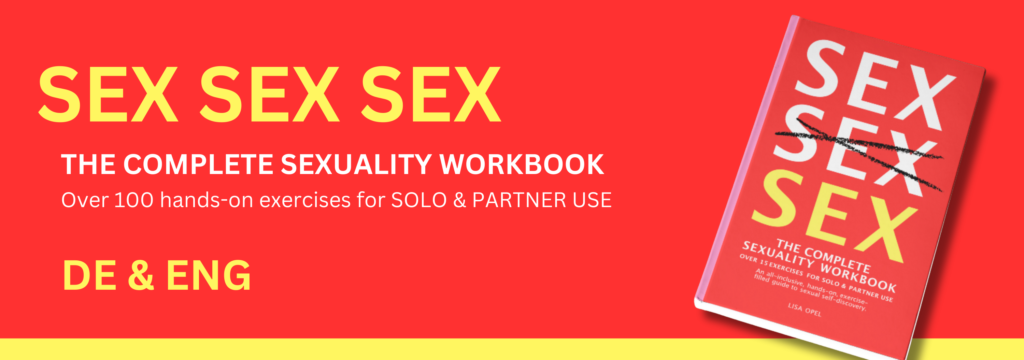Reclaiming Needy Dependence as a Radical Act of Feminism
The politics of neediness: shame, gender, and power

Table of Contents
I can do hard things. I’ve done all the hard things. I’ve held it together. I’ve pushed through. I’ve not needed anyone, at least not out loud. And let me be honest: I’m exhausted.
For years, I bought into the story that independence was my freedom. That asking for help made me weak. That needing someone too much was embarrassing. But here’s the truth I’m sitting in now: my needs are not a liability. They’re sacred.
And saying that? Saying, I need, I want, I can’t do this alone? That’s not failure. That’s feminism.
We’ve made “neediness” a dirty word, especially for women
Somewhere along the line, we started calling everything human about us “too much.” Too emotional. Too sensitive. Too needy.
Especially if you’re a woman. Especially if you’ve been taught to be low-maintenance, chill, good. You’re not supposed to cry too loud, want too deeply, or expect too much, because then you’re difficult. Or worse: dramatic.
But that’s the system talking. That’s patriarchy and capitalism and internalized misogyny, all whispering: Don’t be a burden. Don’t be soft. Don’t need anyone.
And it’s all a lie.
Depending on others isn’t weak. It’s revolutionary.
Here’s what I believe now:
1. We’re meant to need each other
Needing isn’t some unfortunate flaw we should outgrow. It’s the whole point. We are biologically and emotionally wired for connection-attachment, responsiveness, shared care. Pretending we grow out of that is both unnatural and deeply isolating.
2. Independence is a myth, especially for mothers
The “strong, independent woman” was supposed to be our feminist archetype. But that woman never rests. She doesn’t cry until bedtime. She does everything herself and clutches her emotional needs in a tight fist. That’s not liberation, it’s burnout in lipstick.
3. Reciprocity is where the magic lives
Depending on others isn’t about helplessness. It’s about building something mutual. Trust, attunement, shared labor. I need you. You need me. Not because we’re broken, but because we’re alive.
What reclaiming need looks like in my life
As a married woman and mother, I still believe in agency. But I now admit: I need my partner’s ear, my community’s care, and a family that shares emotional and domestic load. I name what I need, unapologetically. What does that look like?
It looks like asking my partner to take over bedtime so I don’t lose it.
It looks like messaging a friend: “Actually, I’m not okay.”
It looks like needing reassurance, softness, affection and no longer shrinking from that truth.
I used to think that voicing those needs would make me seem weak. But when I started doing it, people didn’t walk away. They leaned in. Turns out, most of us are dying to be asked to care for each other again.
Rewriting the language of shame (glossary of terms; my reframing)
Here’s how I now define the words that used to keep me small:
Needy no longer means embarrassing or excessive. To me, it means emotionally honest and alive.
Dependent isn’t about being incapable; it’s about trusting others enough to be held.
Vulnerable isn’t dangerous exposure; it’s courageous intimacy.
Support isn’t a burden, it’s a shared rhythm of giving and receiving.
And codependency? That’s not the same thing as healthy, reciprocal reliance. Real dependence can be strong, clear, and spacious.
Impact beyond the personal: why it matters
Claiming dependability is not just personal therapy. It’s political:
It challenges the misogynist trope that emotional expression disqualifies women.
It resets expectations in intimate partnerships—children, too—where care is fluid, shared.
It contests capital‑driven metrics of worth: productivity, independence, self‑reliance.
When I say, “I need connection,” I’m dismantling that narrow feminist ideal of “getting by on my own.” I’m not asking permission—I’m asserting my worth.
This is feminist liberation
Reclaiming dependence is a personal breakthrough; a social and political one. Because what if the very things we were taught to fear, our longings, our emotional depth, our desire to lean, are actually our power?
This is not a return to powerlessness. It’s a refusal to live numbed out. It’s a reminder that relationships are not accessories to a complete life. They are life.
I no longer aspire to be the woman who doesn’t need anyone.
I want to be the woman who says, “I need, and I am still whole.”
So if you’re tired, like me, of white-knuckling your way through motherhood, marriage, career, and care work, know this: your neediness is not shameful. It’s sacred. And reclaiming it is a radical act of feminism.
Final thoughts: why this is feminist liberation
True feminist liberation isn’t about proving you don’t need anyone. It’s about proving your needs are valid—and non‑negotiable—not signs of flaw.
By reclaiming needy dependence, I offer this as a gift: to other women, to friends, to lovers, to families. We no longer apologize for being relational, emotional, embodied. We say: our needs are radical.
DEEPER ROOTS: The Theory Beneath the Feelings
Curious about the scholars and frameworks behind this reclamation of need? Here’s where theory meets lived feminism.
Bell Hooks – Feminism as Love and Community
Bell Hooks challenged versions of feminism that center rugged autonomy and individualism. In All About Love, she emphasizes that love is not a passive feeling but an active, ethical practice of care, commitment, responsibility, and justice.
“There can be no love without justice… abuse and neglect negate love. Care and affirmation … are the foundation of love.”
“Rarely, if ever, are any of us healed in isolation. Healing is an act of communion.” Forbes
Her work quietly insists that when we reclaim interdependence, we reclaim love as social transformation.
Attachment Theory & Emotionally Focused Therapy – We Are Wired to Need
John Bowlby and Mary Ainsworth established that humans are born wired for attachment—seeking emotional safety and responsiveness, not independence. In adult relationships, this plays out through secure bonds, emotional regulation, and shared vulnerability.
Therapist Dr. Sue Johnson, creator of Emotionally Focused Therapy (EFT), built on these ideas:
“My resilience comes from that sense of secure attachment … Secure attachment is what we try to create in our couples in couples therapy.”
EFT teaches that relationships change when we allow one another to need—and to meet that need compassionately.Verywell Mind
Audre Lorde – Self‑Care as Political Warfare
Dr. Audre Lorde reframed self-care from indulgence to survival. In A Burst of Light, she wrote:
“Caring for myself is not self‑indulgence, it is self‑preservation, and that is an act of political warfare.”
Her message: naming needs, honoring limits, and preserving our well-being is a deep feminist resistance—especially when society demands our exhaustion. The commercialization of self-care today often strips this radical intention.
Carol Gilligan – The Wisdom of Connection
Gilligan’s work showed that women consistently frame moral choice through relationship, care, and empathy. This isn’t weakness: it’s a relational ethic, a form of wisdom rooted in care and community rather than individualism.
Feminist Critique of Neoliberal Independence
Feminist thinkers have critiqued the trope of the “self‑made woman” as neoliberal co‑option—painting hyper-independence as empowerment while erasing mutual obligation and care. Reclaiming dependence is a refusal of the lone‑wolf myth.
Want to dig deeper?
Here are a few accessible reads and media to explore further:
Bell Hooks, All About Love: New Visions or Feminist Theory: From Margin to Center
Sue Johnson, Hold Me Tight or Attachment Theory in Practice
Audre Lorde, A Burst of Light or Sister Outsider
Pick one. Bookmark it. Let it reshape your map of care.
feminist dependence, reclaiming neediness feminism, radical dependence, feminist emotional interdependence, women expressing needs politically
© 2025 pleasepinchmehard. All rights reserved.









